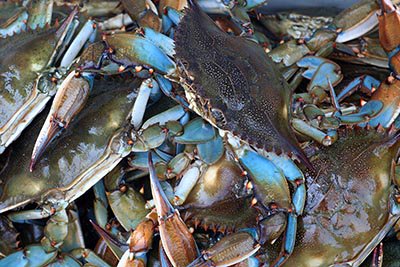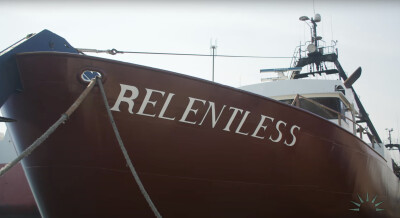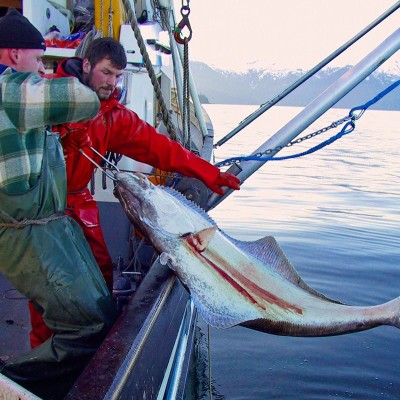As our tenure in the National Oceanic and Atmospheric Administration (NOAA) ends, we want to share the progress our agency team has accomplished. Working with the National Marine Fisheries Service leadership, we sought to increase fishing opportunities, reduce unnecessary burdens, expand market access, and continue to improve the status of fish stocks. As NOAA transitions to a new political leadership team, it is important to build upon the achievements of these past four years, and continue to support the commercial and recreational fishing sectors:
Advance fisheries conservation.
NOAA continued to make significant progress working with fishermen to improve the status of U.S. fish stocks. Two additional fish stocks were rebuilt last year, making a total of 47 fish stocks rebuilt since 2000. The overfishing list dropped to 22 stocks, setting an all-time low. Ninety-three percent of the stocks managed by NOAA are not subject to overfishing and 81 percent are not overfished.
Cooperate with the regional fishery management councils to reduce regulatory burden.
A total of 62 deregulatory actions were finalized between fiscal years 2017 and 2020, saving fishermen over $50 million per year. More importantly, there are approximately 30 deregulatory actions currently in the pipeline within NOAA fisheries. Further, under section 4 of Executive Order 13921, Promoting American Seafood Competitiveness and Economic Growth, NOAA fisheries is required to review and add new deregulatory actions to its agenda that are recommended by the councils, and report annually for the next 3 years on their status.
Support working waters instead of vast marine monuments.
When rolling out the reauthorization of the Magnuson-Stevens Act in December, the sponsors in the House Natural Resources Subcommittee on Water, Oceans, and Wildlife said the Magnuson-Stevens Act has “made the U.S. a global leader in sustainable fisheries.” We agree. So why then is it necessary to circumvent the regional fishery management council process and set aside large areas of U.S. waters as no-fishing zones? Surrounded by Maine fishermen and lobstermen, President Trump signed a Proclamation Modifying Northeast Canyons and Seamounts Marine National Monument. Our preference for conservation is to use the national marine sanctuary process, which is stakeholder-driven and considers fishing interests in its management plans.
Expand tools to curb imported illegal, unregulated, and unreported seafood.
American fishermen deserve a level playing field. That’s why NOAA fisheries is expanding its tools to prevent illegal, unreported, and unregulated (IUU) seafood from entering the U.S. market. In the 2019 report to Congress on IUU fishing, there is an entire section expressing concerns with China, the worst offender of IUU fishing. In the report, NOAA fisheries stated an intent to expand its regulations to include nations whose flagged vessels demonstrate a clear pattern of illegally fishing in other nations’ waters. This appeared to be imminent but has yet to be published. We hope the Biden Administration can build on this Report to Congress on Human Trafficking in the Seafood Supply Chain and expand the definition of IUU fishing to include forced labor.
Prioritize American seafood exports.
NOAA is perfectly positioned within the Department of Commerce to elevate the visibility of seafood trade within the Biden Administration’s international trade priorities. However, there has been no formal mechanism to coordinate seafood trade strategy across the relevant federal agencies and, as a result, the needs of the seafood industry get eclipsed by larger sectors of the economy. Presidential Executive Order 13921 established a Seafood Trade Task Force, and this group has completed its seafood trade strategy. However, the strategy has not yet been made public. We think it should be public and hope the Biden Administration will make it available and implement it.
Innovate fisheries science.
NOAA made great strides in expanding partnerships in ocean science and technology, including AI, autonomous systems, ecosystem assessment, and were reflected in the set of agency research strategies. In addition to stock assessments, there is a tremendous opportunity to reduce observer costs for fishermen through the use of video monitoring with AI and machine learning applications. We encourage federal funding to expand electronic technologies and publish a timetable for implementation.
Reform the process for declaring and funding fishery disasters.
It is absurd that it often takes over four years from the time that a fishery disaster is declared to when funding is disbursed. We applaud Senator Wicker and the bipartisan coalition supporting the Fishery FUNDD Act. During our tenure, reforms were considered to improve the fishery disaster declaration process, but the proposal was ultimately withdrawn. We encourage both Congress and the Biden Administration to fix this utterly broken process.
A greater role for states in managing recreational fisheries.
Amendment 50 helped break the log jam on Gulf of Mexico red snapper. In 2017, private anglers in the Gulf of Mexico were facing a total of 3 fishing days in federal waters. Fast forward to this year, and each state sets its season according to both federal and state science and what works best for its residents. We think incorporating state-derived data into federal stock assessments will lead to more opportunities for recreational anglers, particularly those data on the use of devices to reduce barotrauma as a result of the DECEND Act.
Support for the American lobster industry.
Lobster is the highest valued fishery in the U.S. at approximately $684 million per year. NOAA worked with the Administration on a Presidential Memo to Protect the U.S. lobster fishery and, with the U.S. Department of Agriculture (USDA), to provide $530 million to aid the lobster fishery and other affected fisheries through the Seafood Tariff Relief Program. NOAA also worked closely with affected states and industry to propose a practicable rule that also significantly reduces the risk of entanglement for North Atlantic right whales in trap / pot fisheries, and reprogrammed $1.6 million to aid fishermen with compliance. Going forward, we hope the Biden Administration can expand the partnership between USDA’s programs and the seafood industry.
Fully analyze the impacts of offshore wind on fisheries.
Offshore wind turbines are coming to the Northeast and West Coast in the near future. When the Bureau of Ocean Energy Management conducts its environmental review of potential sites, NOAA Fisheries needs a seat at the table to ensure impacts to fisheries are fully considered. Further, NOAA fisheries should build into its budget the necessary funding for a technical support unit for offshore wind projects to ensure it has the capacity to conduct environmental review in a timely manner.
Americans have a growing dependence upon foreign sources of seafood, which is can be harvested unsustainably, illegally, and farmed using practices that overuse antibiotics, pesticides and thus threaten the health and safety of the fish itself. Not only does this jeopardize the health and wellbeing of American consumers, but also threatens our domestic fishing industry and the sustainability of global fish stocks upon which their future depends. These are challenges that NOAA fisheries is actively working to protect and to provide future safeguards.
Our time at NOAA developing policies to assist fisheries management has come to an end, but many achievements were made that provide a solid foundation to build for continued success. Much work remains to be done, but without a sustained commitment to working with commercial and recreational fishing sectors, these gains will be lost.
We wish the next NOAA leadership team the very best of luck, and to all fishermen a more prosperous 2021.
Sincerely,
Stuart Levenbach, PhD, former NOAA Chief of Staff
Kevin Wheeler, former NOAA Director of Policy







